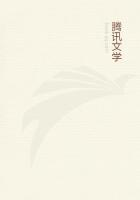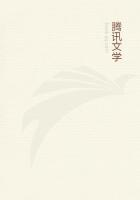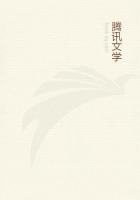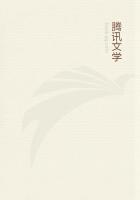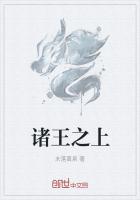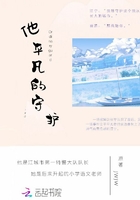'A million of money!' cried Prince Aribert astonished. 'It is impossible!'
'Nevertheless, he does,' said Racksole calmly. Then he told him all he had learnt from Mr Sampson Levi.
'What have you to say to that?' Racksole ended. Prince Aribert made no reply.
'What have you to say to that?' Racksole insisted.
'Merely that Eugen is ruined, even if he is alive.'
'Not at all,' Racksole returned with cheerfulness. 'Not at all. We shall see about that. The special thing that I want to know just now from you is this:
Has any previous application ever been made for the hand of the Princess Anna?'
'Yes. Last year. The King of Bosnia sued for it, but his proposal was declined.'
'Why?'
'Because my nephew was considered to be a more suitable match for her.'
'Not because the personal character of his Majesty of Bosnia is scarcely of the brightest?'
'No. Unfortunately it is usually impossible to consider questions of personal character when a royal match is concerned.'
'Then, if for any reason the marriage of Princess Anna with your nephew was frustrated, the King of Bosnia would have a fair chance in that quarter?'
'He would. The political aspect of things would be perfectly satisfactory.'
'Thanks!' said Racksole. 'I will wager another hundred thousand dollars that someone in Bosnia - I don't accuse the King himself -is at the bottom of this business. The methods of Balkan politicians have always been half-Oriental. Let us go.'
'Where?'
'To this precious house of Nella's adventure.'
'But surely it is too early?'
'So it is,' said Racksole, 'and we shall want a few things, too. For instance, a dark lantern. I think I will go out and forage for a lantern.'
'And a revolver?' suggested Prince Aribert.
'Does it mean revolvers?' The millionaire laughed. 'It may come to that.' 'Here you are, then, my friend,' said Racksole, and he pulled one out of his hip pocket. 'And yours?'
'I,' said the Prince, 'I have your daughter's.'
'The deuce you have!' murmured Racksole to himself.
It was then half past nine. They decided that it would be impolitic to begin their operations till after midnight. There were three hours to spare.
'Let us go and see the gambling,' Racksole suggested. 'We might encounter the Berlin lady.'
The suggestion, in the first instance, was not made seriously, but it appeared to both men that they might do worse than spend the intervening time in the gorgeous saloon of the Kursaal, where, in the season, as much money is won and lost as at Monte Carlo. It was striking ten o'clock as they entered the rooms. There was a large company present - a company which included some of the most notorious persons in Europe. In that multifarious assemblage all were equal. The electric light shone coldly and impartially on the just and on the unjust, on the fool and the knave, on the European and the Asiatic. As usual, women monopolized the best places at the tables.
The scene was familiar enough to Prince Aribert, who had witnessed it frequently at Monaco, but Theodore Racksole had never before entered any European gaming palace; he had only the haziest idea of the rules of play, and he was at once interested. For some time they watched the play at the table which happened to be nearest to them. Racksole never moved his lips.
With his eyes glued on the table, and ears open for every remark, of the players and the croupier, he took his first lesson in roulette.
He saw a mere youth win fifteen thousand francs, which were stolen in the most barefaced mariner by a rouged girl scarcely older than the youth; he saw two old gamesters stake their coins, and lose, and walk quietly out of the place; he saw the bank win fifty thousand francs at a single turn.
'This is rather good fun,' he said at length, 'but the stakes are too small to make it really exciting. I'll try my luck, just for the experience. I'm bound to win.'
'Why?' asked the Prince.
'Because I always do, in games of chance,' Racksole answered with gay confidence. 'It is my fate. Then to-night, you must remember, Ishall be a beginner, and you know the tyro's luck.'
In ten minutes the croupier of that table was obliged to suspend operations pending the arrival of a further supply of coin.
'What did I tell you?' said Racksole, leading the way to another table further up the room. A hundred curious glances went after him. One old woman, whose gay attire suggested a false youthfulness, begged him in French to stake a five-franc piece for her. She offered him the coin. He took it, and gave her a hundred-franc note in exchange. She clutched the crisp rustling paper, and with hysterical haste scuttled back to her own table.
At the second table there was a considerable air of excitement. In the forefront of the players was a woman in a low-cut evening dress of black silk and a large red picture hat. Her age appeared to be about twenty-eight; she had dark eyes, full lips, and a distinctly Jewish nose. She was handsome, but her beauty was of that forbidding, sinister order which is often called Junoesque. This woman was the centre of attraction. People said to each other that she had won a hundred and sixty thousand francs that day at the table.
'You were right,' Prince Aribert whispered to Theodore Racksole;'that is the Berlin lady.'

